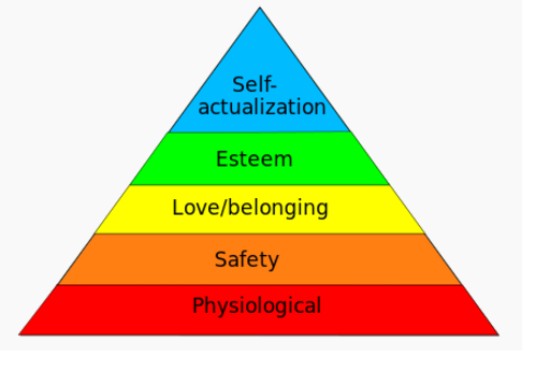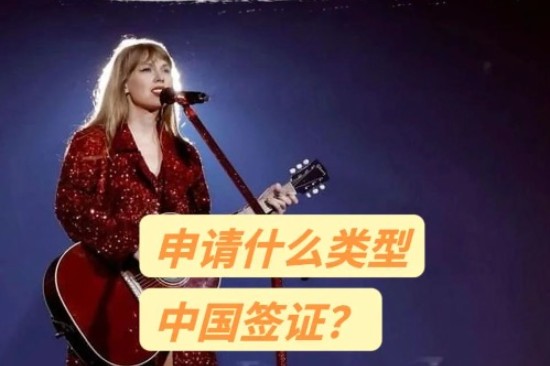What Psychological Needs are Hidden Behind the Boom of the "Performance Economy"?「演出經濟」火爆背後,暗含什麽心理需求
「復蘇即狂熱」。中國演出行業協會發布的數據顯示,2024年一季度,全國營業性演出(不含娛樂場所演出)場次11.90萬場,相當於全國範圍內日均超過1300場。演出市場呈現出大城小城同頻共振,演出地域全面下沈,演出品類全面覆蓋,跨城觀演成為潮流的生動局面。隨著疫情的消散以及國民文娛需求、旅遊需求的復蘇,演出市場迎來爆發窗口期,其規模呈指數級增長,有人用5個字來形容線下演出市場:「復蘇即狂熱」。
"Revival Equals Frenzy": Analyzing the Boom of the Chinese Performance Industry
The China Association of Performing Arts released data showing that in the first quarter of 2024, there were 119,000 commercial performances (excluding entertainment venue shows) across the country, averaging over 1,300 performances per day nationwide. The performance market is experiencing a vibrant scene with simultaneous growth in both large and small cities, comprehensive geographical distribution, and extensive coverage of performance types. With the fading of the pandemic and the recovery of national entertainment and tourism demand, the performance market has entered a booming window period, showing exponential growth. Some describe the offline performance market in five words: "Revival equals frenzy."
一場演出「激活」一座城。「跟著演出去旅行」成了一些青年文旅消費的新風尚。觀看演出構建了一幕幕新的消費場景,激發出「吃、住、行、遊、購、娛」的強大文旅消費潛力。越來越多的人借著觀看演出的機會去到許多大中城市,亦或是一些不知名的小縣城。「觀演+旅遊」的新模式成為一種新生活方式,不少熱門演出場所成為當地旅遊市場的熱門打卡地。演出經濟亦成為各地拉動旅遊收入、提振服務業消費、提升城市流量的「新密碼」。
A Performance "Activates" a City
"Traveling with performances" has become a new trend in cultural and tourism consumption among young people. Watching performances creates new consumption scenarios, unleashing the potential for significant cultural and tourism spending on "eating, accommodation, transportation, travel, shopping, and entertainment." More and more people are seizing the opportunity to watch performances in various large and medium-sized cities or even some unknown small towns. The new model of "watching performances + tourism" has become a new lifestyle, with many popular performance venues becoming hot spots in the local tourism market. The performance economy has also become a "new code" for boosting tourism revenue, stimulating service industry consumption, and increasing urban traffic.
演出由小眾文化走向大眾市場。曾幾何時,各類觀演行為作為一種小圈層文化,在北上廣深等大城市很流行。近年來,演出經濟之風吹到了三四線城市以及更下沈的市場,讓更多人有機會體驗到演出現場的魅力。原來屬於小眾、局限於大城市的演出,「出圈」走向大眾市場。呼和浩特、遵義、臺州、泉州、衡陽、衢州……越來越多的演唱會、音樂節花落三線甚至四五線城市。
Performances Transition from Niche Culture to Mass Market
There was a time when various performance-watching behaviors were popular as a niche culture in major cities like Beijing, Shanghai, Guangzhou, and Shenzhen. In recent years, the performance economy has extended to third- and fourth-tier cities and even deeper markets, allowing more people to experience the charm of live performances. Performances that were originally niche and limited to big cities are now "going mainstream" and reaching a broader audience. Cities like Hohhot, Zunyi, Taizhou, Quanzhou, Hengyang, and Quzhou are increasingly hosting concerts and music festivals, even reaching third- and fourth-tier cities.
觀演是群體參與的社交行為。演出前,相關熱議話題積聚人氣,延展相近偏好的人群連接。熱議過程本身就是社交,個體在交流中有了群體歸屬感,便有了觀演的內在驅動。觀演大多是結伴同行,興趣相投的個體相約參加音樂節、看演唱會或其他演出,結伴即是一定範圍內的熟人社交。在觀演現場,演員與觀眾的互動營造出一種「準社交關系」,觀眾熱衷於觀看各種形式的沈浸式演出,一個重要原因就是觀眾在觀演過程中能「真切地」體驗與演員的互動和社交。演出結束後,在社交媒體平臺曬票根、曬現場、曬評論成為許多觀眾的觀演「後遺癥」,進一步凸顯了觀演的社交目的。
Performance Watching as a Group Social Behavior
Before a performance, related hot topics gather popularity, connecting people with similar preferences. The discussion process itself is social, giving individuals a sense of group belonging and intrinsic motivation to watch performances. Most people attend performances with companions, engaging in familiar social interactions within a certain range by attending music festivals, concerts, or other shows with like-minded individuals. At the performance venue, the interaction between performers and the audience creates a "quasi-social relationship." Audiences are keen on watching various forms of immersive performances, one significant reason being the "genuine" experience of interacting and socializing with the performers during the show. After the performance, many viewers share ticket stubs, live photos, and reviews on social media platforms, highlighting the social purpose of watching performances.
觀演滿足人們多重心理需求。第一,娛樂和休閑的需求:疫後文化娛樂消費需求的釋放,推動了演出市場的火爆。第二,營造出虛擬世界和獨特情感體驗:演出作品常常能夠帶觀眾進入一個與現實不同的世界,讓他們暫時逃離現實生活的束縛和限製。比如,在演唱會上,觀眾或許才是真正的主角,「這不是大合唱,我們是對唱,我唱完你們唱,你們唱完我唱。」歌手伍佰在演唱會上的幽默發言在社交平臺廣為流傳,「伍佰是來指揮的吧」「唱歌給伍佰聽」成為熱梗。第三,自我表達和身份認同:通過選擇觀看特定的演出(如獨立搖滾樂隊的演唱會、小眾話劇等),來展示個性、品位和價值觀。
Meeting Multiple Psychological Needs
Entertainment and Leisure Needs: The release of post-pandemic cultural and entertainment consumption demand has driven the booming performance market.
Creating Virtual Worlds and Unique Emotional Experiences: Performances often transport the audience to a world different from reality, allowing them to temporarily escape the constraints and limitations of real life. For example, at concerts, the audience might be the true protagonists. Singer Wu Bai's humorous remarks at his concerts have gone viral on social media, "Wu Bai is here to conduct" and "singing for Wu Bai" becoming hot memes.
Self-expression and Identity Recognition: By choosing to watch specific performances (such as independent rock band concerts or niche theater productions), individuals can showcase their personality, taste, and values.
休閑娛樂消費的「軟剛需」觀念廣受認同。這是一個註重娛樂生活價值的年代,娛樂「軟剛需」的生活觀和消費觀深入青年群體。閑暇休閑不只是生活的調味劑,其自身價值越來越受重視,愉快地生活成為公眾普遍追求的生活目標。人們不再願意讓工作、學習占據生活的全部,休閑時間的增多和休閑品質的提升成為生活質量提高的重要體現。越來越多的人們願意把更多的時間和金錢投在社交、觀演、旅遊等精神生活上。從「儀式化」觀演到想看就看,休閑娛樂消費的「軟剛需」觀念廣受認同。
The Widely Recognized Concept of "Soft Necessity" in Leisure and Entertainment Consumption
This era values the entertainment lifestyle, and the concept of "soft necessity" in leisure and entertainment consumption has deeply influenced young people. Leisure is no longer just a life seasoning but is increasingly valued for its intrinsic worth. A happy life has become a common pursuit. People are less willing to let work and study dominate their lives. The increase in leisure time and the improvement of leisure quality have become important indicators of life quality. More and more people are willing to spend more time and money on socializing, watching performances, traveling, and other spiritual activities. The concept of "ritualistic" performance watching to watching whenever desired has widely recognized the "soft necessity" in leisure and entertainment consumption.
「為情緒買單」成為當代青年的生活時尚。分手後下單一份「失戀陪伴」,將會收獲陌生人的悉心開導;「罵醒戀愛腦」服務負責幫人走出分手之痛,勸慰沈溺痛苦的年輕人向前看……這些表面上看起來腦洞大開的虛擬服務,在年輕人中有著相當的人氣。情緒情感是人的基本心理機製和心理過程,它不僅影響著人們的消費選擇和消費行為,也同時正在演變成一種消費品。消費市場出現的情緒消費產品不斷湧現,既是時尚和潮流,也彰顯了人們內在的動機追求和社會心態表露。
"Paying for Emotions" Becomes a Lifestyle Trend for Contemporary Youth
After a breakup, ordering a "heartbreak companion" service results in a stranger's thoughtful guidance. The "wake-up call for love-brain" service helps people overcome breakup pain, encouraging young people to move forward. These seemingly whimsical virtual services are quite popular among young people. Emotions and feelings are fundamental psychological mechanisms and processes that influence consumption choices and behaviors, gradually evolving into a type of commodity. The emergence of emotional consumption products in the market reflects both fashion and trends and the inner motivations and social attitudes of people.
消費習慣具有持續性。演出市場的持續火爆改變了人們最初形成的「報復性消費」的判斷,文藝演出越來越成為居民精神生活的「必需品」,觀演甚至成為人們的一種生活方式。小型的、多樣態、多品類的演出像城市的毛細血管一樣遍及城市的各個區域、緊鄰居民的生活和工作場所,滲透進居民的日常生活。觀看演出是一種興趣的滿足,而興趣的滿足不是一次性的,它具有持續性,基於觀演興趣的消費就會成為一種習慣性消費。
Persistent Consumption Habits
The continuous boom of the performance market has altered the initial judgment of "revenge consumption." Cultural performances are increasingly becoming a "necessity" in residents' spiritual lives, with performance watching becoming a lifestyle. Small, diverse, and varied performances, like the capillaries of a city, spread throughout different areas, close to residents' living and working places, permeating daily life. Watching performances satisfies an interest, and interest satisfaction is not a one-time thing; it has persistence, making consumption based on performance watching a habitual consumption.
悅己消費的崛起。當下,越來越多的年輕人願意為一切能愉悅自我的美好東西買單。「悅己」這一消費觀念正逐漸浸染在人們的日常消費活動中,成為當下流行的消費趨勢之一。與老一輩人只是把衣、食、住、行看作必要消費對象不同,年輕群體把休閑娛樂視為重要的生活必需品,與工作和物質生活同等重要。因此,工作之余、晚飯過後,工業園區附近的演藝廳、小區附近的小劇場,就成為人們日常生活中文化休閑的去處,便捷且愜意。悅己消費更註重消費給自身帶來的愉悅,也就是只為自己開心而消費。這種基於「取悅自我」而非「取悅他人」的悅己消費並非個例,而是正在成為一種主流的消費趨勢。
The Rise of "Pleasure Consumption"
Nowadays, more and more young people are willing to pay for anything that can bring them joy. The concept of "pleasure" consumption is gradually infiltrating people's daily consumption activities, becoming a prevailing consumption trend. Unlike the older generation, who viewed clothing, food, housing, and transportation as necessary consumption objects, the younger generation sees leisure and entertainment as essential to life, equally important as work and material life. Therefore, after work, post-dinner, performance halls near industrial parks, and small theaters near residential areas have become cultural leisure spots in daily life, convenient and comfortable. Pleasure consumption focuses more on the joy it brings to oneself, meaning consuming solely for personal happiness. This type of "self-pleasing" consumption, based on "pleasing oneself" rather than "pleasing others," is not an isolated case but is becoming a mainstream consumption trend.
June 26th, 2024

 Tours / 巡演資訊
Tours / 巡演資訊